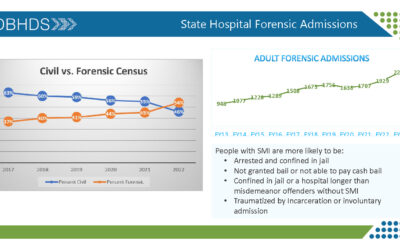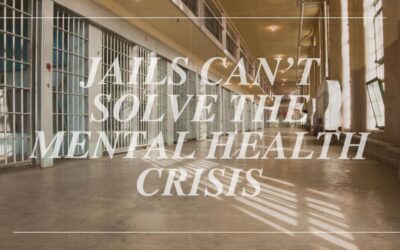(Thanks to Virginia Association of Community Services Boards – VACSB)
The outgoing Governor proposed a signficant down payment to address the severe shortfalls in Virginia’s behavioral health system. Much more needs to be done, but we support the range of services and initiatives included in the proposed budget.
- DBHDS will receive $164M to support pay raises for direct care staff.
- There is a 5% raise for state employees in each of the next two fiscal years. Rate adequacy is important because csbs are Medicaid dependent
- There is $3M to contract with the Virginia Health Care Foundation for a pilot to remove barriers to the mental health workforce which could include payments for clinical supervision.
- There is about $2M for marijuana use prevention initiatives with about $900K appropriated to the Foundation for Health Youth.
- There is almost $3.5M from the Crisis Call Center Fund appropriated for costs associated with the establishment and operation of the 988 Crisis Call Center which will go in DBHDS’ budget. There is funding for the CSBs for call center staff of about $9.4M, which is the second half of the initial funding request for that item.
- There is $1M to do a comprehensive study of the Behavioral Health system.
- There is an increase in hospital Discharge Assistance Planning (DAP) funding of about $3.6M and 3.2; funding to support tracking of DAP funds as well as a study of the rates for services provided with DAP funds; 2.5M each year for services
- There is an increase of about $2M per year in alternative transportation funding, and a giant increase, from $500K to $1.5M in each year, to provide transportation for individuals from state facilities to their homes.
- There is about $3.5M to support a program of alternative custody for individuals boarding in emergency departments.
- It looks like there is about $1.6M in the second year of the biennium for a dementia diversion program. This is a continuation of the ARPA funds to keep providing service with the existing dementia pilots.
- There is a total of $14M in the first year of the new biennium for crisis services (same as actual funding in the last year of the previous biennium) but that increases in the second year of the biennium to $27M.
- There is $11M in each year of the biennium to support the ancillary costs of expanding services at CSBs through STEP-VA. This is a HUGE increase over the $3.2M in the current budget.
- The next 10 MARCUS Alert sites are funded at the same $600K each; $3M in each year of the biennium.
- The last three steps of STEP-VA are funded as follows:
- $2.1M in the first year and $3.8M in the second year for psychiatric rehabilitation services
- $6.5M in each year for care coordination
- $3.1M in the first year and $4M in the second year for STEP-VA specific case management services
- There is $2M in the first year and $9M in the second year to expand Crisis Intervention Team Assessment Centers (CITACs) or Crisis Stabilization Units (CSUs) to become 23-hour crisis receiving or observation centers. This is carved out of the 22M ongoing specifically for these purposes.
- There is language creating an advisory group (includes VACSB) to review and advise on all aspects of the plan for and implementation of the redesign of behavioral health services with a specific focus on ensuring that the systemic plan incorporates the development and maintenance of sustainable business models. Under examination would be the process for service authorization, the interpretation of medical necessity criteria and claims processing by all Medicaid MCOs.
- There is language that says DMAS has to amend the state plan to cover clinically appropriate audio-only services, provider-to-provider consultations and virtual check-ins with patients. This is essentially making permanent a flexibility that was allowed during the pandemic.



